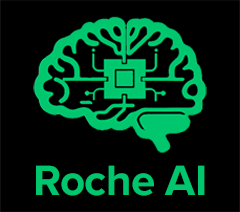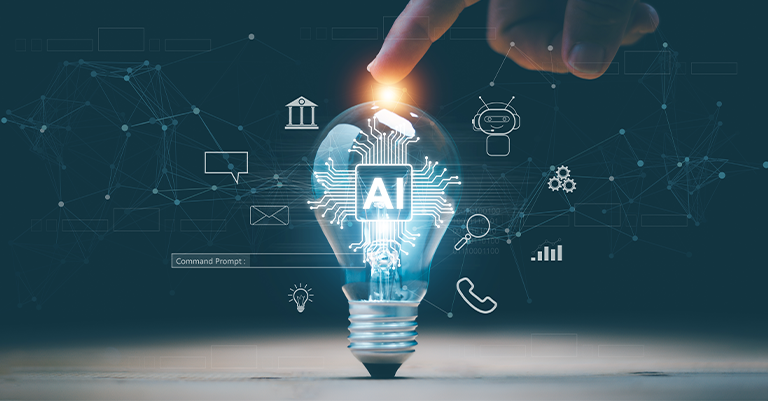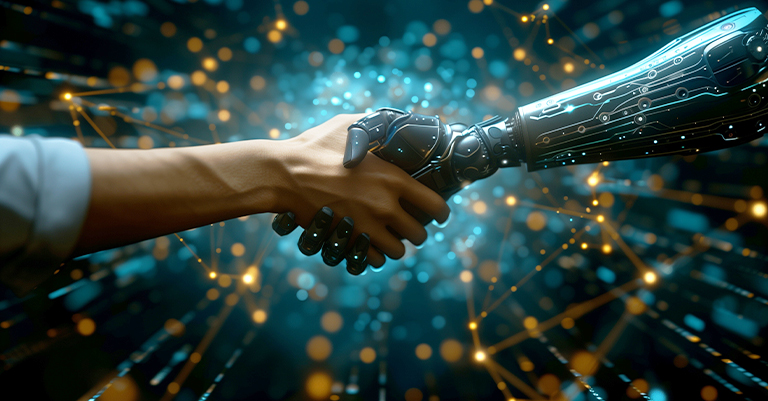How AI is Revolutionizing Marketing
The world of marketing is undergoing a major transformation thanks to artificial intelligence (AI). AI marketing leverages machine learning algorithms and big data to optimize and automate marketing tasks. This leads to smarter, more efficient, and highly personalized marketing strategies. Let’s explore the exciting field of AI marketing and how it can benefit your business.
What is AI Marketing?
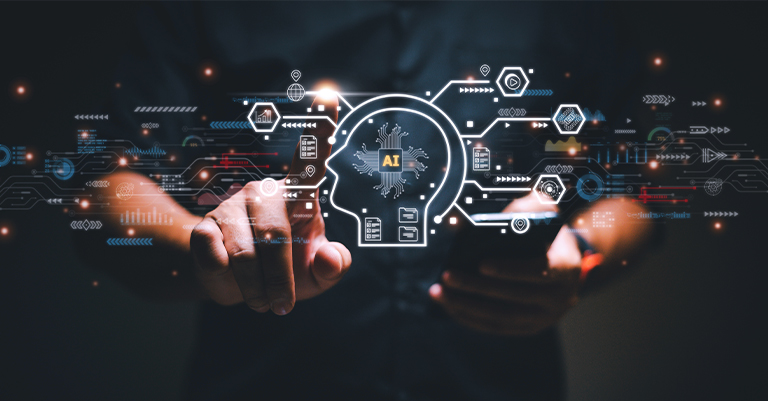
AI marketing refers to using artificial intelligence to make automated choices based on data and customer profiles. It analyzes data to learn how to best interact with customers. This improves marketing results and drives more customer engagement.
Definition of AI Marketing
AI marketing is a method of leveraging customer data to anticipate their next move. It uses machine learning and data analytics to uncover trends and insights. These insights allow marketers to optimize spend, personalize content, and improve the customer journey.
With AI marketing, brands can:
- Automate decisions based on data
- Personalize at an impossibly large scale
- Predict outcomes to drive better results
The goal is to boost performance and grow the business. AI achieves this by understanding customers at a deeper level.
Examples of AI in Marketing
Many companies are already using AI marketing. Here are some common use cases and examples:
Personalized Product Recommendations
AI-powered recommendation engines are a game-changer for ecommerce. By analyzing past purchases, browsing history, and other data points, AI can predict what a customer is likely to buy next. Netflix and Amazon are prime examples. They use complex algorithms to suggest movies or products that match your unique tastes.
This level of personalization has a huge impact on engagement and sales. Customers are more likely to interact with content that is relevant to their interests. According to McKinsey, 35% of Amazon’s revenue comes from AI recommendations. By showing the right product to the right person at the right time, AI drives measurable business results.
Chatbots for Customer Service

Chatbots are one of the most visible examples of AI in marketing. These intelligent assistants can understand customer queries and provide instant support. They use natural language processing (NLP) to interpret the intent behind a question. Then they draw on a knowledge base to give accurate, context-specific responses.
Sephora’s Kik chatbot is a great use case. It quizzes users on their beauty preferences and offers personalized recommendations. The bot can even walk you through a virtual makeup try-on. By automating these interactions, Sephora provides 24/7 customer service at scale. This frees up human agents to focus on more complex issues.
Predictive Lead Scoring
Not all leads are created equal. Some are more likely to convert than others based on their behaviors and demographics. AI can analyze these factors to predict which leads are worth pursuing. Tools like Salesforce Einstein use machine learning to score leads from 1 to 99. The higher the score, the more likely the lead is to become a customer.
This insight is hugely valuable for sales teams. Instead of wasting time on unqualified leads, they can prioritize those with the best chance of converting. Predictive lead scoring makes the sales process more efficient and effective. It’s a great example of how AI can directly impact revenue.
Churn Risk Prediction
Customer churn is a huge problem for subscription-based businesses. But what if you could predict when a customer is likely to leave? That’s exactly what AI churn prediction models do. By analyzing changes in customer behavior, these algorithms identify at-risk accounts.
For example, if a customer’s usage drops or they stop opening emails, it could be a sign they’re about to churn. AI picks up on these subtle cues and flags the account. The company can then take proactive steps to re-engage the customer, such as offering a discount or personalized content. By stepping in at the right moment, businesses can reduce churn and protect their revenue.
Dynamic Price Optimization
Pricing is one of the most complex aspects of marketing. Set prices too high and you’ll lose sales. Set them too low and you’ll leave money on the table. AI dynamic pricing takes the guesswork out of this process. By analyzing supply, demand, and competitor data, algorithms can determine the optimal price in real-time.
Airlines and hotels are already using this technology to great effect. Prices fluctuate constantly based on factors like seasonality, weather, and booking volume. AI ensures they’re always set at the sweet spot to maximize revenue. Customers also benefit from more transparent and fair pricing. It’s a win-win made possible by the power of AI.
Recap
As AI technology evolves, we’re only scratching the surface of its marketing potential. Beyond today’s applications in personalization and analytics, emerging capabilities promise revolutionary changes. Marketing systems will adapt in real-time, forecast trends months ahead, and autonomously optimize content. Companies that embrace these innovations will gain significant advantages, while others may struggle to catch up. The future of marketing isn’t just getting smarter – it’s being reimagined.
Benefits of AI Marketing
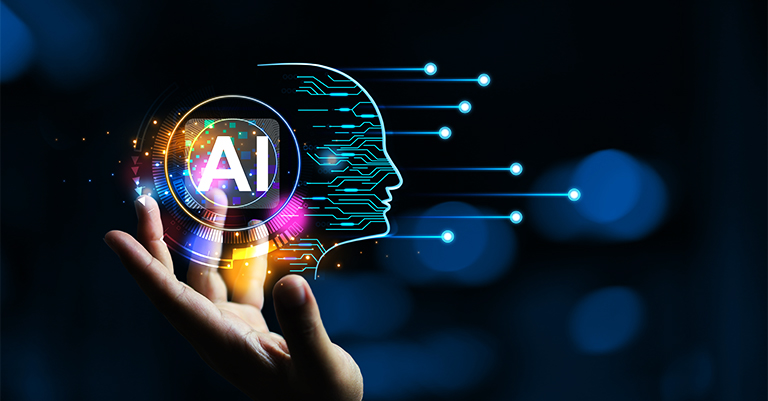
AI is revolutionizing the marketing landscape. By harnessing the power of machine learning and big data, businesses can achieve unprecedented results. From personalization to predictive analytics, AI offers a range of benefits that can take marketing to the next level.
Personalization at Scale
In today’s digital landscape, customers demand personalized experiences tailored to their needs. AI makes this possible by analyzing vast amounts of real-time customer data – from demographics to purchase history – to identify patterns and preferences. This enables highly targeted marketing messages and recommendations, making customers feel understood and valued. Starbucks exemplifies this through their mobile app, which uses reinforcement learning to analyze factors like location, weather, and past orders to deliver personalized suggestions. By implementing AI-driven personalization, companies can significantly boost customer engagement and sales while meeting modern consumers’ expectations for relevant, individualized experiences.
Predictive Analytics
AI-powered predictive analytics is revolutionizing marketing by enabling businesses to anticipate customer behavior through machine learning algorithms. Companies can now score leads based on their likelihood to convert and identify customers at risk of churning before they leave. Amazon exemplifies this power, analyzing billions of data points to predict future purchases, optimize inventory, and deliver relevant recommendations – significantly boosting both sales and customer loyalty. This ability to foresee and act on customer needs transforms how businesses make decisions and engage with their audience.
Increased Efficiency
AI is transforming marketing efficiency by automating repetitive tasks and optimizing processes. From generating content through natural language algorithms to real-time optimization of ad spending, AI frees marketers to focus on strategy and creativity. Harley Davidson demonstrates this power through their AI-powered marketing platform, automated lead scoring, and email marketing, which yielded a dramatic 2,930% increase in leads while reducing cost per lead by 40%. This combination of automation and optimization shows how AI can dramatically improve marketing ROI while reducing manual workload.
Recap
AI is revolutionizing marketing beyond basic automation. Through machine learning and advanced analytics, businesses gain deeper customer insights and enable real-time campaign optimization. AI transforms how we understand customers, optimize resources, and make decisions while delivering personalized experiences at scale. As technologies like deep learning continue to evolve, companies investing in AI will now lead to an increasingly competitive digital landscape where predictive, personalized marketing becomes the norm.
Key Areas of AI Application in Marketing
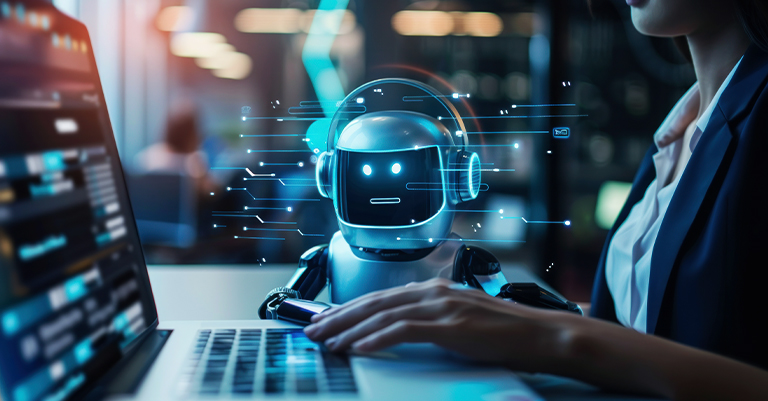
AI is transforming marketing in numerous ways. From customer segmentation to dynamic pricing to chatbots, AI is being applied across the marketing spectrum. Let’s take a closer look at some of the key areas where AI is making a significant impact.
Customer Segmentation
AI is revolutionizing customer segmentation by moving beyond basic demographics to analyze complex behavioral, psychographic, and contextual data. This enables marketers to create more precise, meaningful customer segments and deliver highly targeted campaigns. For example, retailers like The North Face use AI to analyze customer interactions across multiple touchpoints – from in-store to mobile apps – creating detailed segments based on product preferences, buying patterns, and customer value. This sophisticated segmentation leads to more personalized experiences, higher engagement rates, and improved customer satisfaction across all channels.
Dynamic Pricing
AI is transforming dynamic pricing by enabling real-time price adjustments based on multiple factors including market demand, seasonality, weather, competitor pricing, and customer behavior. Companies like Uber demonstrate this through surge pricing that automatically balances supply and demand. In e-commerce, AI-powered dynamic pricing allows retailers to optimize prices based on customer behavior and market conditions, maximizing both conversion rates and profitability. This sophisticated approach to pricing helps businesses maintain competitive advantage while ensuring optimal revenue generation.
Chatbots and Conversational AI
Chatbots and conversational AI are revolutionizing customer service by providing instant, 24/7 personalized support across time zones. These AI-powered tools understand natural language, handle multiple requests simultaneously, and free human agents to focus on complex issues. Beauty retailer Sephora exemplifies this through their mobile app chatbot, which provides customized product recommendations based on individual customer preferences and needs. This technology enables businesses to deliver enhanced customer experiences while reducing costs and driving sales.
AI-Powered Content Creation

AI is revolutionizing content creation through tools that streamline production while maintaining quality. Natural language generation (NLG) can transform data into written narratives, as demonstrated by Associated Press using AI to generate financial reports. AI tools also optimize content for grammar, style, and SEO, while enabling rapid video creation from text. This technology allows businesses to produce more content efficiently, freeing human creators to focus on strategic and creative tasks while ensuring consistent quality across all channels.
Recap
In summary, AI is being applied in numerous ways across the marketing landscape. From customer segmentation to dynamic pricing to chatbots and content creation, AI is enabling businesses to be more efficient, effective, and customer-centric. As the technology continues to advance, we can expect to see even more innovative applications of AI in marketing.
Implementing AI in Your Marketing Strategy
Implementing AI in your marketing strategy can seem daunting. However, with the right approach, it can be a smooth and rewarding process. Here are the key steps to successfully integrate AI into your marketing efforts.
Identify Use Cases
Successful AI implementation begins with identifying high-impact use cases by evaluating current marketing processes. Focus on time-consuming, repetitive, or data-intensive tasks that align with business objectives – whether that’s improving efficiency, personalization, or conversion rates. Before implementation, validate each potential use case through feasibility studies that assess technical requirements, data availability, and potential ROI to ensure resources are invested in the most promising opportunities.
Choose the Right Tools

Selecting the right AI marketing tools requires careful evaluation of your specific needs, budget, and team capabilities. Key considerations include ease of use, integration with existing systems, scalability, and required technical expertise. Choose vendors with proven track records, strong support, and transparent practices. Before committing, test potential tools through demos or trials to ensure they meet your requirements and can grow with your organization.
Ensure Data Quality
The success of AI marketing initiatives depends heavily on data quality. Before implementation, assess your data collection and storage practices to ensure accuracy, consistency, and accessibility. Consider specific data requirements for your AI tools and be prepared to invest in data cleaning or enrichment. Importantly, ensure your data is unbiased and representative to avoid skewed outputs – regular audits for fairness help maintain ethical AI practices.
Measure and Optimize
Successful AI implementation requires ongoing monitoring and optimization. Establish clear KPIs aligned with business goals, implement robust monitoring systems to track real-time performance, and regularly review AI outputs to ensure they deliver value. Keep a critical eye on results and be prepared to adjust models or strategies based on performance data. This continuous improvement approach helps maximize AI’s impact on your marketing efforts.
Finally, don’t be afraid to experiment and iterate. AI is a rapidly evolving field, and what works today may not work tomorrow. Continuously test new approaches and technologies to stay ahead of the curve.
Recap
In summary, implementing AI marketing into your strategy requires a thoughtful and strategic approach. By identifying the right use cases, choosing the right tools, ensuring data quality, and continuously measuring and optimizing, you can harness the power of AI to drive better marketing results.
The Future of AI in Marketing

As AI continues to evolve, its impact on marketing will only grow. From emerging trends to long-term outlook, let’s explore what the future holds for AI in marketing.
Emerging AI Marketing Trends
AI is a rapidly evolving field, and new applications are emerging all the time. Here are some of the top AI marketing trends to watch in the coming years:
Hyper-Personalization
Personalization has been a buzzword in marketing for years. However, AI is taking it to the next level with hyper-personalization. This involves using AI to analyze vast amounts of customer data in real-time to deliver highly targeted and individualized experiences. For example, AI could analyze a customer’s browsing history, purchase behavior, and social media activity to predict their needs and preferences. It could then serve up personalized product recommendations, content, and offers at the exact moment they’re most likely to convert. As customers increasingly expect tailored experiences, hyper-personalization will become a key differentiator for brands.
Augmented Analytics
Augmented analytics is the use of AI and machine learning to automate data analysis and insight generation. It involves tools that can automatically clean, integrate, and analyze large datasets, as well as provide predictive and prescriptive recommendations. For marketers, augmented analytics can be a game-changer. It can help them quickly identify trends, anomalies, and opportunities in their data without requiring deep technical expertise. This can lead to faster, more informed decision-making and better marketing outcomes. As data volumes continue to grow, augmented analytics will become an essential tool for marketers looking to stay competitive.
Conversational Marketing
Conversational marketing is the use of chatbots, messaging apps, and voice assistants to engage with customers in real-time. It’s about creating a dialogue with customers rather than simply pushing messages at them. AI is powering the next generation of conversational marketing tools. Chatbots are becoming more sophisticated, with the ability to understand complex queries and provide personalized recommendations. Voice assistants like Alexa and Siri are being integrated into more devices, creating new opportunities for voice-based marketing. As customers increasingly prefer conversational interfaces, AI will be key to scaling these interactions.
AI-Generated Content
As mentioned earlier, AI can be used to generate various types of content, from articles to videos. As these tools become more sophisticated, we can expect to see more AI-generated content in marketing. This doesn’t mean that human content creators will become obsolete. Rather, AI will be used to augment and assist human creativity. For example, AI could be used to generate first drafts or suggest ideas, while humans provide the creative direction and final polish. AI-generated content will also enable more personalization at scale. For example, an AI system could generate thousands of versions of an email tailored to individual recipients.
Long-Term AI Marketing Outlook
Looking further into the future, the potential impact of AI on marketing is vast. Here are some possibilities:
Predictive Consumer Behavior
As AI gets better at analyzing and predicting consumer behavior, we may reach a point where marketers can anticipate customer needs before they even arise. Imagine a world where your favorite brand sends you the perfect product before you even realize you need it. This level of prediction would require vast amounts of data and highly sophisticated AI models. It also raises important questions about privacy and user control. However, the potential for truly anticipatory marketing is exciting.
Fully Automated Marketing Campaigns

Today, AI is used to automate specific tasks within marketing campaigns. However, in the future, we may see fully automated campaigns that are planned, executed, and optimized by AI systems. This could involve AI systems that can identify target audiences, develop creative assets, select channels, and adjust tactics in real-time based on performance. Humans would still be needed to set overall strategy and provide creative input, but much of the execution could be handed off to AI. This level of automation could enable marketers to run more campaigns at greater scale and efficiency.
Enhanced Reality Experiences
AI is also likely to play a big role in the future of augmented reality (AR) and virtual reality (VR) marketing. These technologies are already being used to create immersive brand experiences, such as virtual product try-ons and interactive store displays. As AI advances, we can expect these experiences to become even more personalized and responsive. For example, an AI system could analyze a customer’s facial expressions and body language to gauge their reaction to a virtual product and make real-time adjustments. AI could also be used to create highly realistic virtual environments and avatars, blurring the line between the real and the digital.
Ethical AI Practices
As AI becomes more prevalent in marketing, the issue of ethics will come to the forefront. Marketers will need to ensure that their AI systems are transparent, unbiased, and respectful of user privacy. This will require close collaboration between marketers, data scientists, and ethicists, as well as robust governance frameworks and regular auditing of AI systems. In the long run, brands that prioritize ethical AI practices will be better positioned to build trust with customers.
Recap
The future of AI in marketing is exciting and full of possibilities. From hyper-personalization to enhanced reality experiences, AI has the potential to revolutionize the way brands interact with customers. However, realizing this potential will require careful planning, ongoing experimentation, and a commitment to ethical practices. Marketers who can navigate this complex landscape will be well-positioned for success in the AI-driven future.
Final Thoughts on AI Marketing
As we’ve explored throughout this article, AI is fundamentally transforming the marketing landscape. From personalized recommendations and predictive analytics to dynamic pricing and automated content creation, AI technologies are enabling businesses to connect with customers more effectively than ever before. Companies that embrace these innovations are seeing tangible results – improved efficiency, enhanced customer experiences, and significant ROI.
However, this is just the beginning. As AI continues to evolve, we’ll see even more sophisticated applications emerge, from hyper-personalized experiences to fully automated campaigns. The key to success lies in thoughtful implementation: identifying the right use cases, selecting appropriate tools, maintaining data quality, and continuously measuring results. For marketers, the message is clear: AI isn’t just another trend – it’s the future of our industry. Those who adapt and embrace these technologies now will gain a significant competitive advantage, while those who delay risk falling behind. The future of marketing isn’t just getting smarter – it’s being completely reimagined through the lens of artificial intelligence.

